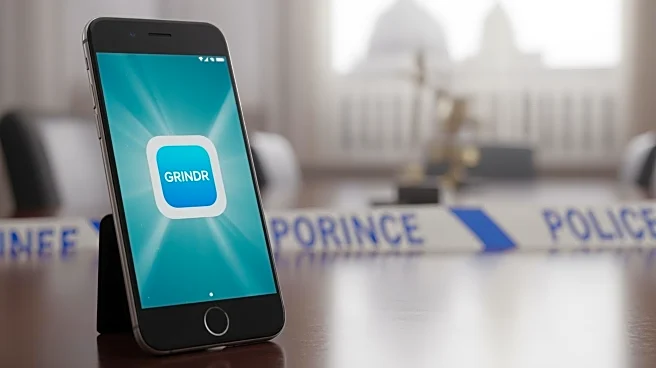What's Happening?
White House communications director Steven Cheung has shared images purportedly of former Rep. Adam Kinzinger, suggesting they were posted on the gay dating app Grindr. The images, which appear to be taken from Snapchat, show a man with a tattoo similar
to Kinzinger's US Air Force pilot badge. However, discrepancies exist as Kinzinger's tattoo is on his right arm, while the tattoo in the images is on the left arm. The allegations arose after Kinzinger criticized Republicans for not denouncing President Trump's White House ballroom project. Cheung, known for his aggressive media interactions, responded by sharing the images, although the authenticity of the photos remains unconfirmed.
Why It's Important?
This incident highlights ongoing tensions between former Rep. Adam Kinzinger and allies of President Trump. Kinzinger, a vocal critic of Trump, has previously served on the House panel investigating the January 6 Capitol riot and voted to impeach Trump. The allegations and subsequent media attention could impact Kinzinger's public image and further polarize political discourse. It underscores the contentious nature of political interactions in the U.S., where personal attacks and social media play significant roles in shaping public perception and political narratives.
What's Next?
The situation may lead to further scrutiny of the images' authenticity and potential legal or ethical implications for those involved. Kinzinger's response and any official statements from his representatives could influence public opinion and media coverage. Additionally, the incident may prompt discussions on privacy and the use of social media in political conflicts. Stakeholders, including political leaders and media outlets, may react by either supporting or condemning the actions of those involved, potentially affecting future political alliances and strategies.
Beyond the Headlines
This development raises questions about the ethical use of personal images in political disputes and the role of social media in amplifying such conflicts. It also touches on broader issues of privacy and consent in the digital age, where personal information can be weaponized for political gain. The incident may contribute to ongoing debates about the responsibilities of public figures and the impact of digital platforms on political discourse.
















